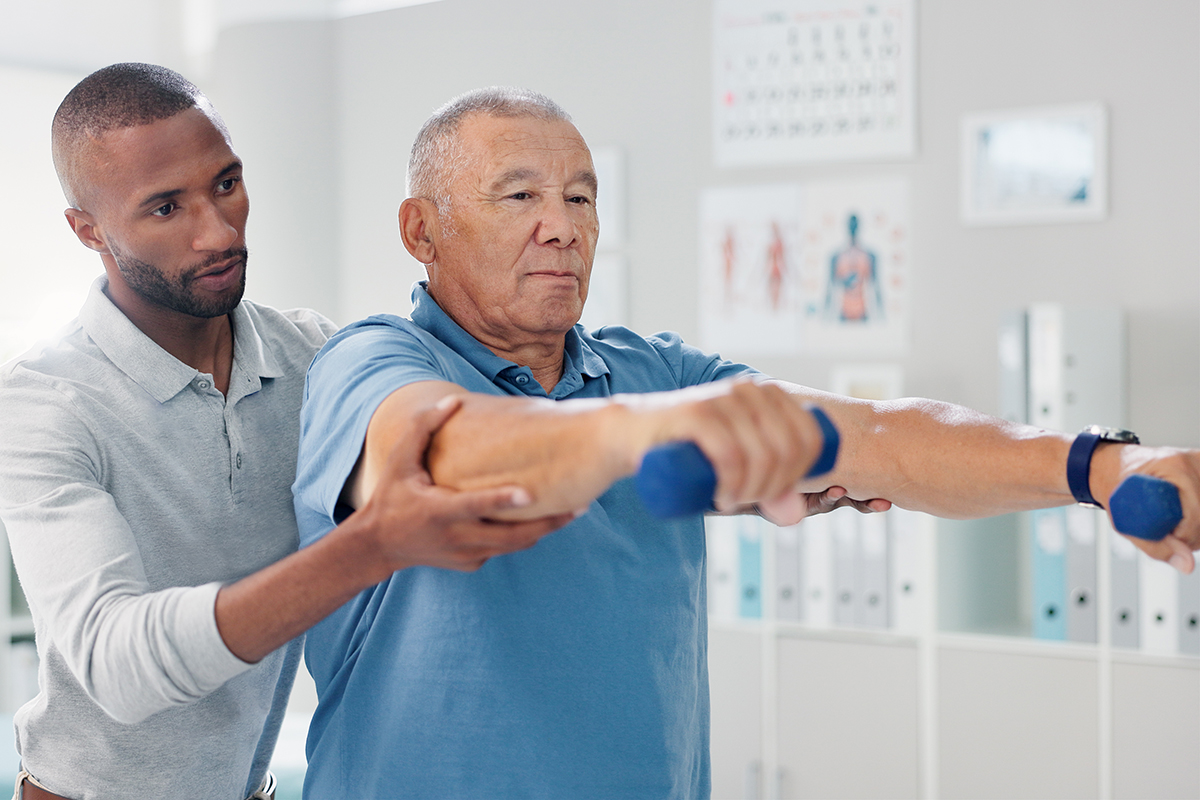Pain Awareness Month: How Physical Therapy Can Help with Pain Management
By Dr. Frank J. Scerbo, PT, DPT ///
September marks Pain Awareness Month, a time dedicated to shedding light on chronic pain and finding ways to effectively manage it. For millions of people, chronic pain can be debilitating, affecting their quality of life, emotional well-being, and ability to perform everyday activities. Nearly 100 million Americans experience chronic pain, amounting to more than those who have diabetes, heart disease, and cancer combined, according to the American Academy of Pain Medicine and the US Pain Foundation. With opioid use often being the go-to solution for pain relief, there’s an increasing need to explore safer, non-invasive alternatives. One powerful tool in this fight against pain is physical therapy.
In this blog post, we’ll explore the importance of Pain Awareness Month, how physical therapy can be a key player in managing pain, and what you can do to take the first step toward a pain-free life.
The Pivotal Role of Physical Therapy in Pain Management
Physical therapy (PT) is a holistic approach to pain management that focuses on addressing the root cause of pain, improving mobility, and strengthening the body. Here’s how physical therapy can help manage pain:
1. Personalized Treatment Plans Physical therapists design individualized programs tailored to your specific needs. By thoroughly assessing your pain points, underlying conditions, and overall health, they create a plan that targets the source of your pain rather than just masking it.
2. Exercise Therapy Movement is medicine PT incorporates therapeutic exercises that improve flexibility, strengthen muscles, and enhance joint function. Regular exercise helps reduce stiffness and inflammation, leading to long-term pain relief. Whether you’re recovering from an injury, surgery, or managing a chronic condition, physical therapists provide guided exercise plans that fit your level of ability.
3. Manual Therapy Techniques Physical therapists use hands-on techniques like massage, joint mobilization, and myofascial release to alleviate pain. These techniques work by improving circulation, reducing muscle tension, and promoting healing, helping you feel better faster.
4. Education and Pain Management Strategies Understanding your body and pain is crucial. PTs educate patients on proper posture, body mechanics, and daily modifications that can prevent pain from worsening. This knowledge empowers you to manage pain in your everyday life, from lifting heavy objects to sitting at your desk.
5. Non-Invasive and Drug-Free Physical therapy offers a non-invasive, drug-free alternative to managing pain. With growing concerns about opioid dependency, PT provides a safer option for pain relief without the risks associated with long-term medication use.
Common Conditions That Physical Therapy Can Help
Physical therapy can be beneficial for a wide range of pain-related conditions, including:
• Arthritis: PT helps manage joint pain, increase range of motion, and improve strength, making daily tasks easier and less painful.
• Back and Neck Pain: Whether from poor posture, injury, or chronic conditions like degenerative disc disease, PT can relieve pain and prevent future flare-ups.
• Sports Injuries: From sprains and strains to more serious injuries, physical therapy helps athletes recover faster and regain their full range of motion.
• Post-Surgical Recovery: PT aids in recovery after surgery by reducing pain and swelling, restoring movement, and preventing complications.
• Fibromyalgia: For those with fibromyalgia, PT provides gentle exercises and techniques to ease widespread pain and improve energy levels.
Often, early intervention can prevent pain from any of these conditions from becoming a long-term issue, so it’s essential to seek help sooner rather than later.
Taking the First Step Towards Pain Relief
Pain Awareness Month reminds us that pain doesn’t have to control our lives. Physical therapy offers a proactive, natural way to manage pain and improve overall quality of life. By working closely with your physical therapist, you can take charge of your health, reduce your pain, and get back to doing what you love.
If you’re struggling with chronic pain, our physical therapists at Scerbo Physical Therapy & Sports Rehabilitation can guide you through a personalized pain management plan that’s tailored to your unique needs.
Contact us to book a physical evaluation to explore the best treatment options for your pain.



